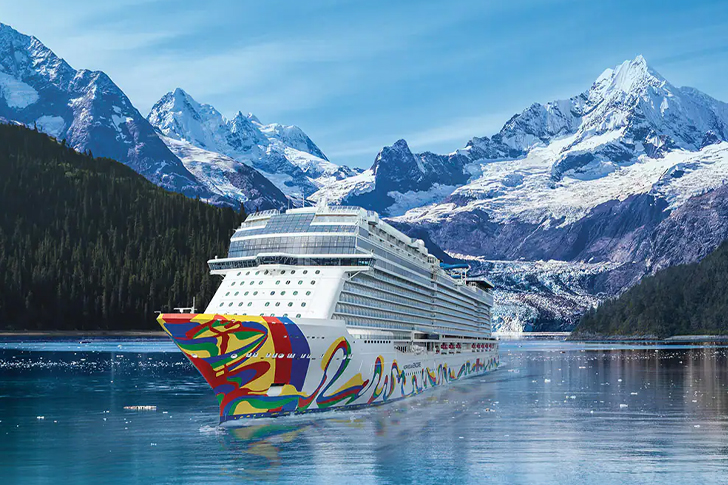Planning a Cruise to Suit a Senior’s Budget and Preferences
Introduction: The Allure of Cruises for Seniors
Many seniors look forward to enjoying their retirement years exploring new places without the hustle and bustle of flights and road trips. Cruises offer a unique vacation style that caters to diverse preferences and budgets, making them an appealing choice for older adults. This article guides seniors through the process of planning a cruise that aligns with their financial constraints and personal tastes.

Understanding the Cost Factors of Cruises
The first step in planning a cruise is understanding the factors that affect the cost. The price of a cruise typically includes accommodation, most meals, and a range of onboard activities and entertainment. However, extras like shore excursions, specialty dining, spa services, and gratuities can add up. It’s important to consider what’s included and what will cost extra to effectively budget for the entire trip.
When to Cruise: Timing for Better Deals
Seasonality significantly impacts the cost of a cruise. Peak season varies depending on the destination; for instance, Caribbean cruises are more expensive during the winter months when people seek an escape from colder climates. Conversely, booking during the shoulder season — the periods just before or after peak season — can lead to significant savings. For budget-conscious seniors, cruising during off-peak times can mean fewer crowds and lower prices, without a significant compromise on weather.
According to industry reports, booking your trip during what is known as the ‘wave season’ — a period from January to March when cruise lines offer significant discounts and promotions — can also save you a lot of money. Coming across a deal during this time can reduce costs by up to 30% off regular prices.
Choosing the Right Cruise Line and Ship
Different cruise lines cater to different age groups and interests. Mainstream lines like Carnival or Royal Caribbean tend to attract families and younger travellers with their array of high-energy activities and vibrant nightlife. On the other hand, lines such as Holland America, Princess Cruises, and Viking offer a more subdued ambiance with refined entertainment and activities tailored towards seniors, such as ballroom dancing, bridge tournaments, and educational talks.
The size of the ship can also impact your experience. Larger ships boast a vast array of amenities and entertainment options, which might appeal to seniors seeking a lively and extravagant atmosphere. Smaller ships, however, often offer a more intimate setting with enhanced personal service, easier navigation, and access to smaller, less crowded ports of call.
Accommodation Choices: Types and Accessibility
Choosing the right type of cabin is crucial for a comfortable journey. Inside cabins are the most economical option, but they lack windows. An outside cabin with a window or a balcony might be more expensive but preferable for those who spend more time in their cabin or enjoy ocean views. Seniors should also consider the location of their cabin in relation to the ship’s amenities to avoid long walks or frequent elevator rides.
Accessibility is another important factor. Many cruise lines offer handicap-accessible rooms, which are designed with wider doorways, grab bars, and other features to aid those with mobility issues. It’s important to book these rooms well in advance as they are limited.
Destination and Itinerary: Matching Preferences with Port Calls
When selecting a cruise, consider whether you prefer days at sea to relax or a port-intensive itinerary that offers a new destination every day. Some seniors might enjoy the laid-back nature of transatlantic cruises, which feature many days at sea, while others might prefer coastal cruises that offer daily opportunities to explore different cities and cultures.
Researching the destinations and shore excursions is key. Look for reviews and recommendations from other senior travelers to ensure that the activities and pace fit your mobility and interest levels. For instance, excursions that include strenuous activities might not be suitable for those with limited mobility, but many cruise lines offer suited alternatives.
Insurance and Medical Facilities: Planning for Safety and Security
Travel insurance is paramount, especially for seniors. Look for policies that cover trip cancellations, medical expenses, and medical evacuation. Additionally, check that the cruise ship has adequate medical facilities. Many ships are equipped with medical centers that can handle minor emergencies, but more severe cases may require medical evacuation, which can be extraordinarily expensive without insurance.
Conclusion: Enjoying a Tailored Cruise Experience
Cruises can offer seniors an ideal blend of relaxation, adventure, and convenience. By carefully considering the timing of the cruise, the right cruise line and ship, cabin types, destinations, and financial safeguards such as travel insurance, senior travelers can customize their experience to suit their budget and preferences. With the appropriate planning, a cruise can become not just a vacation, but an unforgettable adventure.







Recent Comments